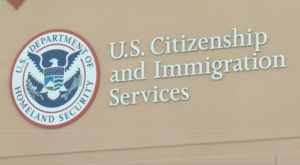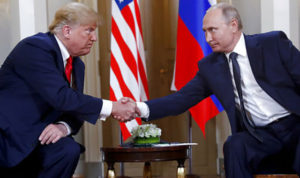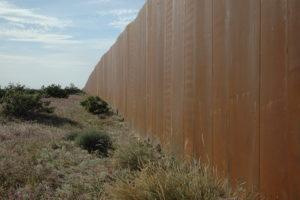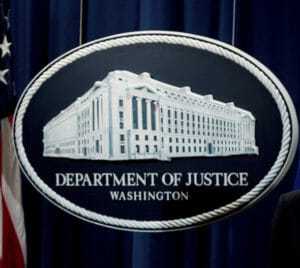Seattle Man Says Homeland Security Officer Taunted, Photographed Him (Video)
A Seattle man says a Homeland Security officer provoked him Thursday by following him and appearing to take close-up pictures or video of him while a private security guard did the same. The disconcerting encounter was posted online.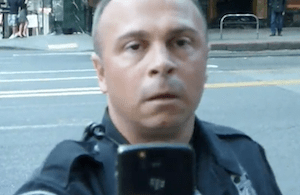
A Seattle man says a Homeland Security officer provoked him Thursday by following him and appearing to take close-up pictures or video of him while a private security guard did the same. The disconcerting encounter was posted online.
This was privacy activist Phil Mocek’s second contact with uniformed authorities in as many days. He said that Wednesday, a plainclothes federal agent briefly seized his camera after he took a picture from a public sidewalk of what appeared to be unmarked or personal vehicles parked in a row of spaces reserved for law enforcement outside the Henry M. Jackson Federal Building in the downtown area.
Soon after taking the photo, a white truck that was parked in one of the spots drove by him, pulled a U-turn and parked crooked in the street, Mocek said. That’s when a man got out of the vehicle and grabbed his camera, he said.
The man identified himself as an agent with the Bureau of Alcohol, Tobacco and Firearms. He began going through the pictures on the camera, Mocek said, as an officer from the Federal Protective Service of Homeland Security and a private security guard who works at the federal building watched. When the agent eventually returned the camera, one of the images was deleted, Mocek said.
It is not illegal to take photographs in public or to photograph federal facilities.
Mocek said that while walking to work Thursday, the same Federal Protective Service officer who witnessed the previous day’s incident took out his BlackBerry phone and appeared to be filming Mocek.
Their exchange, available in the three and a half minute video below, went like this:
“Is there a problem, sir?” Mocek asks.
“I don’t know, is there? You tell me,” the officer responds. “Why are you blocking your face, huh?”
“Are you investigating something?”
“No, I’m just taking pictures,” the officer says. “Maybe I’m just out here taking pictures.”
The officer in the video does not seem to be “just taking pictures.” A private citizen taking photographs of a federal building — a legally protected activity — is one thing. A uniformed representative of the state, with the full prosecutorial power of the federal government behind him, taking photos of a private citizen for apparently no investigative reason and verbally taunting the citizen when questioned would be an act of state aggression.
— Posted by Alexander Reed Kelly.
Your support matters…The Associated Press via The Bellingham Herald:
Mocek, who works in software development and systems administration and works with a group called the Seattle Privacy Coalition, said he has taken photos of cars parked in the law enforcement-only stretch of spots before because he is interested in seeing whether, using a police database of records from automated license-plate readers, he could track where those cars had been.
The American Civil Liberties Union of Washington recently analyzed the use of such readers by Seattle police. It found that over a three-year period, the department generated 7.3 million records showing where and when license plates were recorded. The organization described that as an enormous privacy risk, and said that by using the data, it was possible to determine where certain police officers lived and in some cases where and when they took their lunch breaks.
“I believe strongly in personal privacy and institutional transparency,” Mocek said. “Given what’s happening at the federal level, I think it’s really important to look at what our local authorities are doing, how they’re tracking us and how they’re surveilling us.”
Independent journalism is under threat and overshadowed by heavily funded mainstream media.
You can help level the playing field. Become a member.
Your tax-deductible contribution keeps us digging beneath the headlines to give you thought-provoking, investigative reporting and analysis that unearths what's really happening- without compromise.
Give today to support our courageous, independent journalists.

